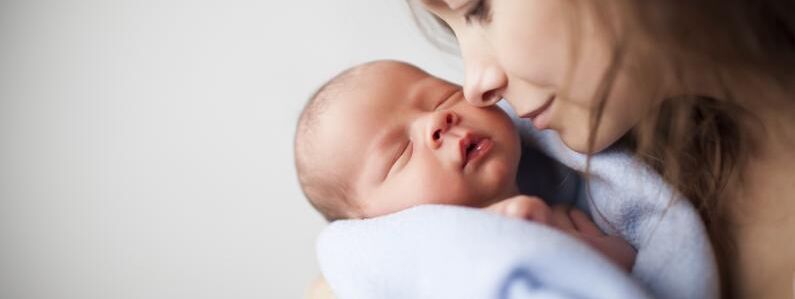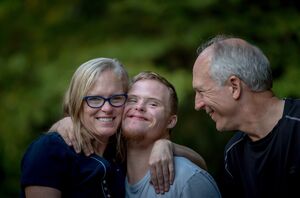Marriage and Family
First three-parent baby born in UK

The first baby conceived with DNA from three separate ‘parents’ has been born in the UK, the fertility regulator has confirmed.
Most of the baby’s DNA comes from two parents and the final 0.1% comes from a third, donor woman.
Background - how did we get here?
In 2013, the Human Fertilisation and Embryology Authority (HFEA) advised the government that it supported introducing new mitochondrial donation techniques (known as maternal spindle transfer and pronuclear transfer). In 2014, the under-secretary of state for health announced that the Regulations to allow for the introduction of these techniques was laid before the House. MPs approved the regulations in February 2015.
The UK did not push ahead immediately. Since the vote to approve the regulations, further research has been undertaken. In December 2016, the HFEA said it would allow clinics to apply for licences to conduct limited trials of the technique. Doctors in Newcastle were given the first UK licence in 2017. In 2018, doctors were given permission to create the UK’s first ‘three parent’ babies for two women deemed at risk of passing inheritable diseases to their children.
Why was it introduced?
The aim of the two new techniques is to prevent children being born with mitochondrial diseases. When mitochondria do not function properly, they cause diseases that affect many of the body’s organs, usually muscle, brain, eyes and heart.
Why are we concerned about these new techniques?
Whenever new technologies are proposed and explored, especially one’s that will involve the creation of human life, we should be cautious. It’s very easy to spend so long thinking about whether you could do something, you forget to ask whether we should do it. Scientific advance is both a cause for celebration and also a cause for concern. It’s vital robust, ethical safeguards are put in place to stop advancement for the sake of advancement.
At first glance, preventing mitochondrial disease appears very desirable. But the process is deeply problematic from a Christian perspective.
Ethical concerns
The technique involves crossing an ethical line in the sand. It involves the manufacture of human beings, designed to have certain properties. In this instance, it means babies designed to not have mitochondrial disease. But the key question is where does this sort of editing stop?
What about the fact the research involved in this new technique involves the destruction of human embryos? This means destroying the possibility of life.
There will be an ongoing need to increase the supply of donated eggs to generate embryos for research and treatment. Egg extraction involves high dosage of drugs and often means pain for the donors.
We also have no idea what the long term consequences of this will be. Despite media reports claiming the DNA from the third person ‘in no way constitutes a third parent’, the reality is very different. In 2015, the New Scientist actually changed its position, saying it was incorrect for the government to argue that mitochondrial DNA simply provides energy and does not impact identity.
This new technique means three adults will share with the baby a parental genetic connection. What will the psychological effects be for the child, knowing their DNA is derived from three separate genetic ‘parents’? Will it impact their sense of personal identity?
Safety concerns
Before the technique was approved, experts from around the world raised safety concerns. For example, prior to being given the green light by MPs, the technique had only been tried on humans a handful of times. When it was, it resulted in an abortion, a miscarriage and stillbirth. There remains concerns that the two techniques pose a danger.
A Christian perspective
God made human beings in His image. In Genesis 1-2 we have a natural, moral order which God has set in place. He has designed the means for procreation and it involves a man and a woman in the context of a covenant relationship.
We must acknowledge here the impulse and desire to prevent disease is good and right. Some of what motivates those pushing this new technique is honorable and good.
While the creation mandate of Genesis 1:28 involves subduing creation, and while this involves creating technologies, that is not a license to disrupt the order God has given us. Moreover, the argument that the end – preventing mitochondrial disease – justifies the means – three parent babies – is biblically flawed. Romans 3:8 says: “And why not do evil that good may come – as some people slanderously charge us with saying’?
The inherent goodness of the human body is proved by two things. Firstly, in Genesis 1:31 it is declared ‘very good’. This is the highest possible praise from God. Secondly, when God raised Jesus from the dead, He kept His resurrection, physical body and retains it now in glory. This was God’s plan for the created order.
Share
